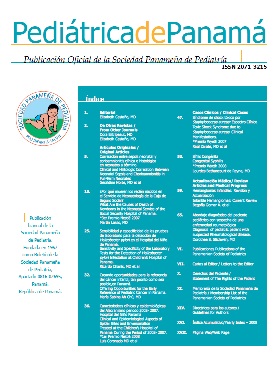About other Journals

Authors
DOI:
https://doi.org/10.37980/im.journal.rspp.32469Keywords:
articles, reviews, international journalsAbstract
SUMMARY 1
This study assessed the 5-year survival of 116 pediatric cancer patients with febrile neutropenia (FN) using advanced statistical analyses such as Kaplan-Meier and Cox regression models. Significant risk factors identified included solid tumors, sepsis, delays in chemotherapy, and invasive fungal infections. Conversely, post-cancer comorbidities and caregivers' intermediate educational level were associated with better prognosis. The overall 5-year survival rate was 64.7%, emphasizing the importance of these prognostic factors in managing these patients.
SUMMARY 2
This meta-analysis reviewed 23 studies involving 3,335 children to evaluate prophylactic options for recurrent urinary tract infections (RUTIs). Results indicate that nitrofurantoin and cranberry products significantly reduce the incidence of symptomatic urinary tract infections, with nitrofurantoin being the most effective option. However, none of the interventions demonstrated efficacy in preventing renal scarring. The need for future trials investigating non-antibiotic prophylaxis options for children with RUTIs and risk of renal damage is highlighted.
SUMMARY 3
This study evaluated the impact of the 1+1 infant vaccination schedule with PCV13 introduced in the United Kingdom in 2020 compared to the previous 2+1 schedule. Based on 702 episodes of invasive pneumococcal disease (IPD), the results showed that the 1+1 schedule provides similar effective protection as the 2+1 schedule, with no significant differences in overall IPD incidence, serotype distribution, clinical presentation, or fatality rates. Continuous surveillance is emphasized to monitor the long-term effectiveness of the 1+1 schedule.
Downloads
Published
Issue
Section
License
Copyright (c) 2024 Infomedic Intl.Derechos autoriales y de reproducibilidad. La Revista Pediátrica de Panamá es un ente académico, sin fines de lucro, que forma parte de la Sociedad Panameña de Pediatría. Sus publicaciones son de tipo gratuito, para uso individual y académico. El autor, al publicar en la Revista otorga sus derechos permanente para que su contenido sea editado por la Sociedad y distribuido Infomedic International bajo la Licencia de uso de distribución. Las polítcas de distribución dependerán del tipo de envío seleccionado por el autor.






